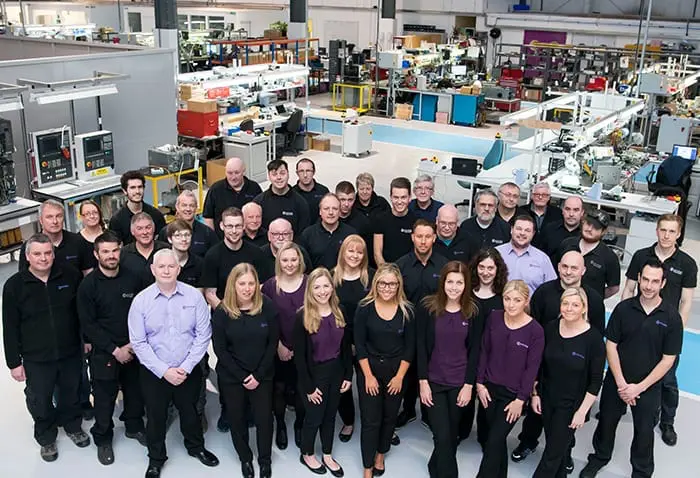A COVID-19 Update


Andrew Follant
Managing Director, Kontroltek Ltd


Andrew Follant, Kontroltek’s Managing Director, has written a COVID-19 update for the Kontroltek blog.
It draws on his personal experience of managing during this period, and what we’ve been doing as a company.
I remember watching about it in the news, around early February. It’s probably around the same time that people in the UK first took notice of the coronavirus outbreak. And when every world leader is downplaying the impact, you’re not sure what to think.
You need to think differently when you’re in my position. For example, the wellbeing of Kontroltek staff was my first thought. There was no clear data at that time, and there still isn’t really. So, I’m worried about my staff and how to keep them safe.
Secondly, for our customers. Not only am I hoping they and their employees are staying safe, but also that we can continue to repair for them.
China had already begun shutting down by early February. But the world is so well connected now, the spread of COVID-19 was too fast for countries to react in time. We have customers and partners in most European countries, which quickly became the epicentre of the pandemic.
So, we saw supply chains impacted. If China, the world’s largest manufacturer, has shut down then suddenly a lot of links are broken. Your part may not be from China, but it’s likely that it is made of smaller electronic components from around the world—a battery from Germany, a memory card from South Korea or a touchscreen from China.
Fortunately, we have a large inventory at our workshops. Our engineers have access to thousands of parts, but for parts they needed to order, it was becoming more difficult.
The Kontroltek operations team has always made the effort to diversify where we get our supplies from. If one country is affected, we can get the part from somewhere else. The difficulty with this situation is that the whole world was shutting down.
In March, we begun implementing measures at our offices and workshops: access to hand sanitiser, working from home where possible, staggered breaks and more. The information was, and still is, changing every day—which makes it extremely difficult to manage.
We feel very grateful to say that, up to this point, no Kontroltek members of staff have suspected to contract the coronavirus (COVID-19).
Then, we saw a flood of economic decisions and fiscal policies from governments. Many of our customers, especially in the automotive sector, had already begun shutting down for Easter. Other customers were busier than ever.
As customers closed factories; other businesses furloughed staff, we had a decision to make. Do we close our workshops or continue going? And it’s almost an overwhelming decision, because you have a duty to both your employees and your customers.
Economies began to hit the pause button. We had gone from a supply shock to a supply and demand shock. It had become more difficult to get what you needed, but also so much spending had and has stopped that it didn’t matter.
We temporarily reduced our staff numbers and stayed open for those who needed us. This wasn’t an opportunity to make money, it was a chance to help. We play a pivotal part in supporting the manufacturing industry.
Repairing parts has always been the cost-effective, more sustainable option. And as the cost of buying parts accelerated upwards, we have managed to keep the cost of repairs low.
We’re supporting industries like food & drink, pharmaceuticals and plastics. These companies are under immense pressure—retail panic buying, and online orders are taking their toll. We’re proud we’re continuing to help these customers.
Then, there’s not enough PPE. How can we help? Well, we have the extra capacity in place at our workshops to offer a faster turnaround. Let’s provide those manufacturers involved in NHS supply chains with emergency repairs at standard repairs.
We’re indirectly helping frontline workers by making sure they continue to get what they need. Minimise the manufacturer’s downtime and the equipment get there faster.
And then I’m asking myself, can we do more? It’s almost addictive to think of new ways on how we can help. (I recently read in a Bill Gates’ article that it is innovation that will help us defeat this pandemic).
In our South Wales workshop, we have a 3D printer that wasn’t being used. I speak with Nigel, our Projects & Systems Supervisor, and we think about what we can manufacture ourselves.
Face shields.
In whatever spare time we have, we’re producing face shields for those who need them. We posted about it on our social media channels, and it went viral on Facebook.
There has been no better feeling than to receive photos from those wearing the face shields we have made. We’ll soon have provided over 1,000 face shields, and we’ve even got a second printer to double our efforts.
We have provided the staff of care services, hospitals, retail shops and even teaching services with extra safety. These people are risking their lives on the frontlines of the COVID-19 pandemic every day, and I believe them to be very brave.
Sadly, it’s a taken a crisis of this size for us to realise how underappreciated these members of society are. Hopefully, when this is over, we’ll see real change for them.
And eventually, it will be over. The curve is flattening. Governments are announcing exit strategies for lockdowns. We’re already seeing some of our customers re-open their doors.
The impact on all of us has been great, but we’ll bounce back.
We pledged over a month ago that if you’re open, so are we. That pledge is now evolving into if you’re ready, so are we.
As each of our customers opens the doors of their plants again, our engineers will be waiting to offer support and repair their parts.
